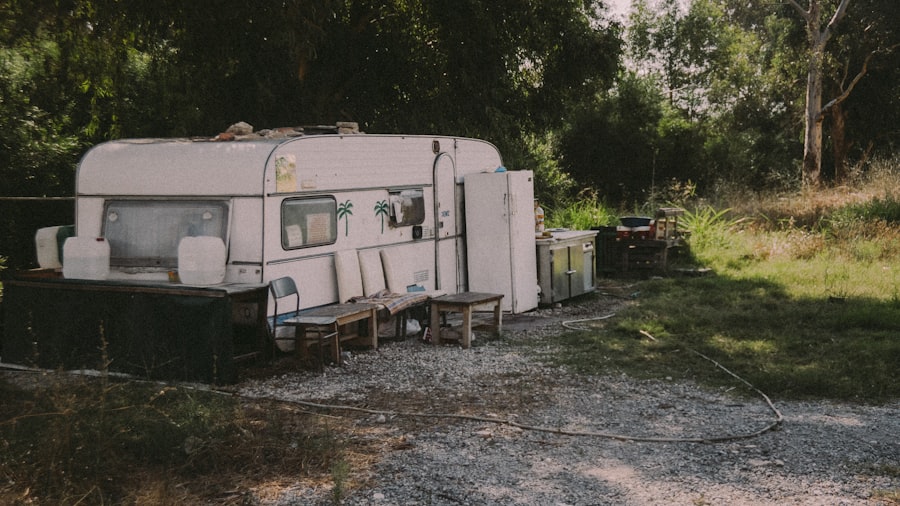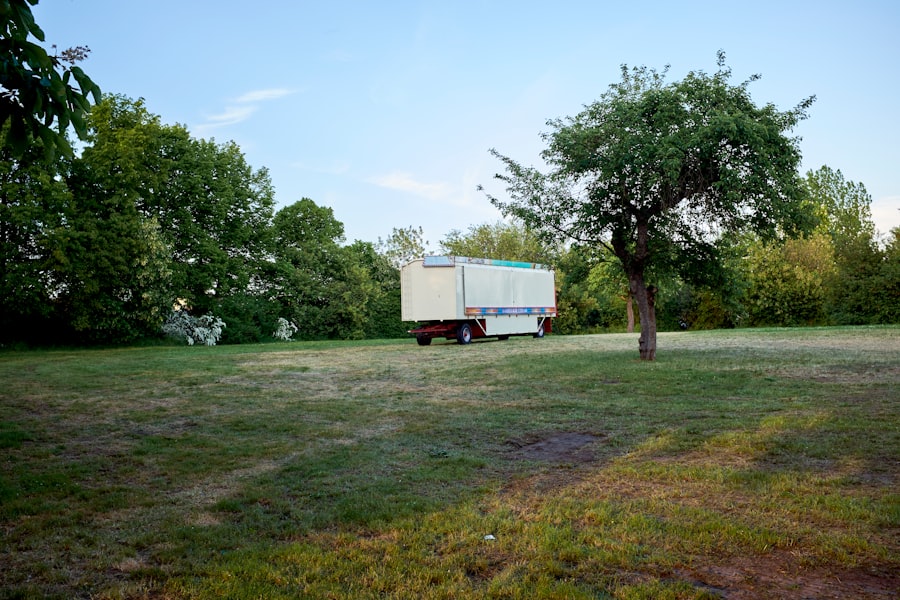Trailer park homes, often referred to as mobile homes or manufactured homes, have evolved significantly over the decades. Initially perceived as a temporary housing solution, these homes have gained recognition for their affordability and flexibility. The concept of living in a trailer park has transformed from a stigma associated with low-income housing to a viable option for a diverse range of individuals and families.
Today, trailer parks can be found in various settings, from rural areas to suburban neighborhoods, offering a unique lifestyle that appeals to many. The modern trailer park is not merely a collection of mobile homes; it represents a community where residents share common spaces and amenities. These parks often provide a sense of belonging and camaraderie among neighbors, fostering relationships that can last for years.
As the housing market continues to fluctuate, more people are considering trailer park living as an alternative to traditional homeownership, drawn by the promise of lower costs and a simpler lifestyle.
Key Takeaways
- Trailer park homes offer affordable and flexible housing options.
- Living in trailer parks provides access to community amenities and social connections.
- Cost-effectiveness is a major benefit, making homeownership more accessible.
- It’s important to consider regulations, legal aspects, and potential drawbacks before moving in.
- Researching and visiting multiple parks helps find the best fit for individual needs.
Benefits of Living in a Trailer Park Home
One of the most significant benefits of living in a trailer park home is the sense of community it fosters. Residents often find themselves in close proximity to their neighbors, which can lead to lasting friendships and support networks. Many trailer parks organize community events, such as potlucks, holiday celebrations, and yard sales, which encourage social interaction and help build a strong sense of belonging.
This communal atmosphere can be particularly appealing for those who may feel isolated in more traditional housing arrangements. In addition to the social benefits, trailer park homes often provide a more relaxed lifestyle. Many parks are located in serene environments, surrounded by nature or near recreational areas.
This proximity to outdoor activities can enhance residents’ quality of life, offering opportunities for hiking, fishing, and other leisure pursuits. Furthermore, the slower pace of life in trailer parks can be a welcome change for individuals seeking to escape the hustle and bustle of urban living.
Cost-Effective Living Options

Cost is one of the primary reasons people choose to live in trailer parks. The initial purchase price of a mobile home is typically much lower than that of a traditional house, making it an attractive option for first-time buyers or those on a tight budget. Additionally, the ongoing costs associated with trailer park living are often more manageable.
Monthly lot rents are generally lower than mortgage payments, and utility costs can be reduced due to the smaller size of mobile homes. Moreover, many trailer parks offer various financing options that can make homeownership more accessible. Some parks have partnerships with lenders who specialize in mobile home financing, providing residents with tailored solutions that fit their financial situations.
This accessibility allows individuals and families to invest in their own homes without the burden of overwhelming debt, making it easier to achieve financial stability.
Amenities and Community in Trailer Parks
| Amenity | Description | Average Availability (%) | Community Impact |
|---|---|---|---|
| Clubhouse | Common area for social gatherings and events | 65 | High – fosters social interaction and community bonding |
| Playground | Outdoor play area for children | 50 | Moderate – encourages family-friendly environment |
| Swimming Pool | Recreational pool for residents | 30 | High – promotes leisure and social activities |
| Laundry Facilities | On-site washers and dryers | 80 | Essential – convenience for residents |
| Community Garden | Shared gardening space for residents | 20 | Moderate – encourages sustainability and interaction |
| Security Services | Gated access or patrol services | 40 | High – enhances safety and peace of mind |
| Pet Areas | Designated spaces for pets to play | 35 | Moderate – supports pet owners and community engagement |
| Wi-Fi Access | Internet connectivity in common areas | 25 | Increasing – supports connectivity and modern needs |
Trailer parks often come equipped with a range of amenities that enhance the living experience for residents. Common features may include swimming pools, playgrounds, clubhouses, and fitness centers. These facilities not only provide entertainment options but also encourage residents to engage with one another, fostering a sense of community.
For instance, a clubhouse may host game nights or movie screenings, creating opportunities for neighbors to connect and socialize. In addition to recreational amenities, many trailer parks prioritize landscaping and maintenance, ensuring that common areas are well-kept and inviting. This attention to detail contributes to an overall pleasant living environment and can enhance property values within the park.
Some parks even offer organized activities such as gardening clubs or exercise classes, further promoting community involvement and healthy lifestyles among residents.
Tips for Finding the Right Trailer Park Home
When searching for the ideal trailer park home, it is essential to consider several factors that can significantly impact your living experience. First and foremost, research the location of potential parks. Proximity to work, schools, shopping centers, and healthcare facilities can greatly influence your daily life.
Additionally, consider the surrounding environment; some individuals may prefer a quiet rural setting while others may seek the vibrancy of an urban area. Another critical aspect is the reputation of the trailer park itself. Speak with current residents to gain insight into their experiences and assess the management’s responsiveness to concerns or issues.
Online reviews can also provide valuable information about the park’s overall atmosphere and maintenance standards. Furthermore, visiting the park during different times of day can help you gauge noise levels and traffic patterns, ensuring that you choose a location that aligns with your lifestyle preferences.
Potential Drawbacks of Trailer Park Living

While there are numerous advantages to living in a trailer park home, it is essential to acknowledge potential drawbacks as well. One common concern is the perception associated with mobile home living. Despite the improvements in quality and design over the years, some individuals still harbor negative stereotypes about trailer parks, which can affect residents’ social interactions outside their communities.
Another potential drawback is the lack of control over land ownership. In many cases, residents own their mobile homes but rent the land on which they sit. This arrangement can lead to uncertainties regarding rent increases or changes in park management policies.
Additionally, if the park is sold or repurposed for other uses, residents may face relocation challenges. It is crucial for prospective buyers to thoroughly review lease agreements and understand their rights as tenants before committing to a trailer park home.
Regulations and Legal Considerations
Living in a trailer park comes with specific regulations and legal considerations that potential residents should be aware of before making a decision. Each state has its own laws governing mobile homes and trailer parks, which can affect everything from zoning regulations to tenant rights. Understanding these laws is essential for ensuring compliance and protecting your interests as a resident.
For instance, many states require trailer parks to adhere to specific safety standards regarding construction and maintenance. Additionally, tenants often have rights related to eviction processes, rent increases, and maintenance responsibilities. Familiarizing yourself with local regulations can help you navigate any potential issues that may arise during your time in a trailer park community.
Is a Trailer Park Home Right for You?
Deciding whether a trailer park home is suitable for you involves careful consideration of your lifestyle preferences, financial situation, and long-term goals. For many individuals and families, the benefits of cost-effective living, community engagement, and access to amenities make trailer parks an appealing option. However, it is essential to weigh these advantages against potential drawbacks and legal considerations.
Ultimately, finding the right fit requires thorough research and self-reflection. By understanding what you value most in your living situation—be it affordability, community connection, or proximity to nature—you can make an informed decision about whether a trailer park home aligns with your vision for your future living arrangements.



